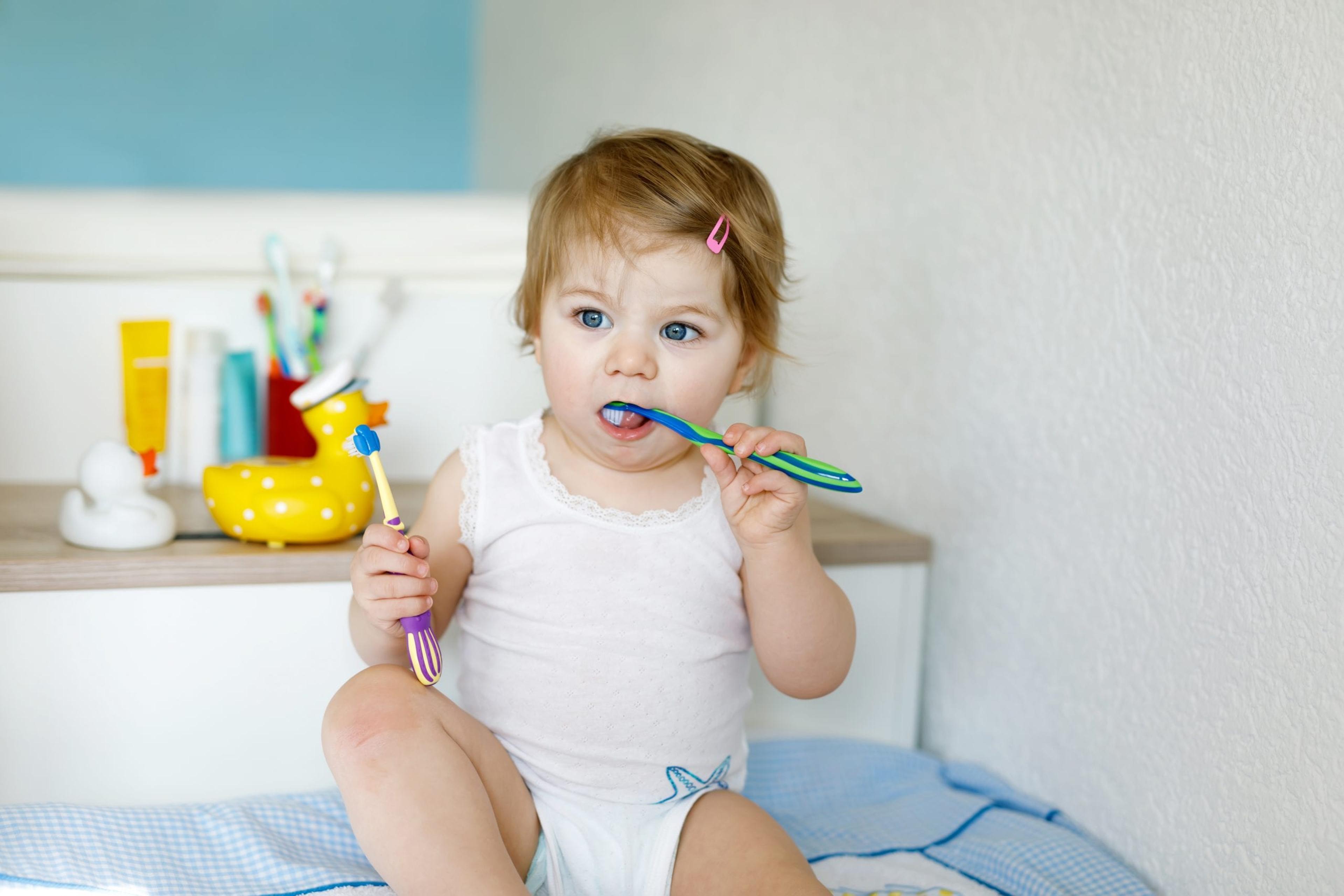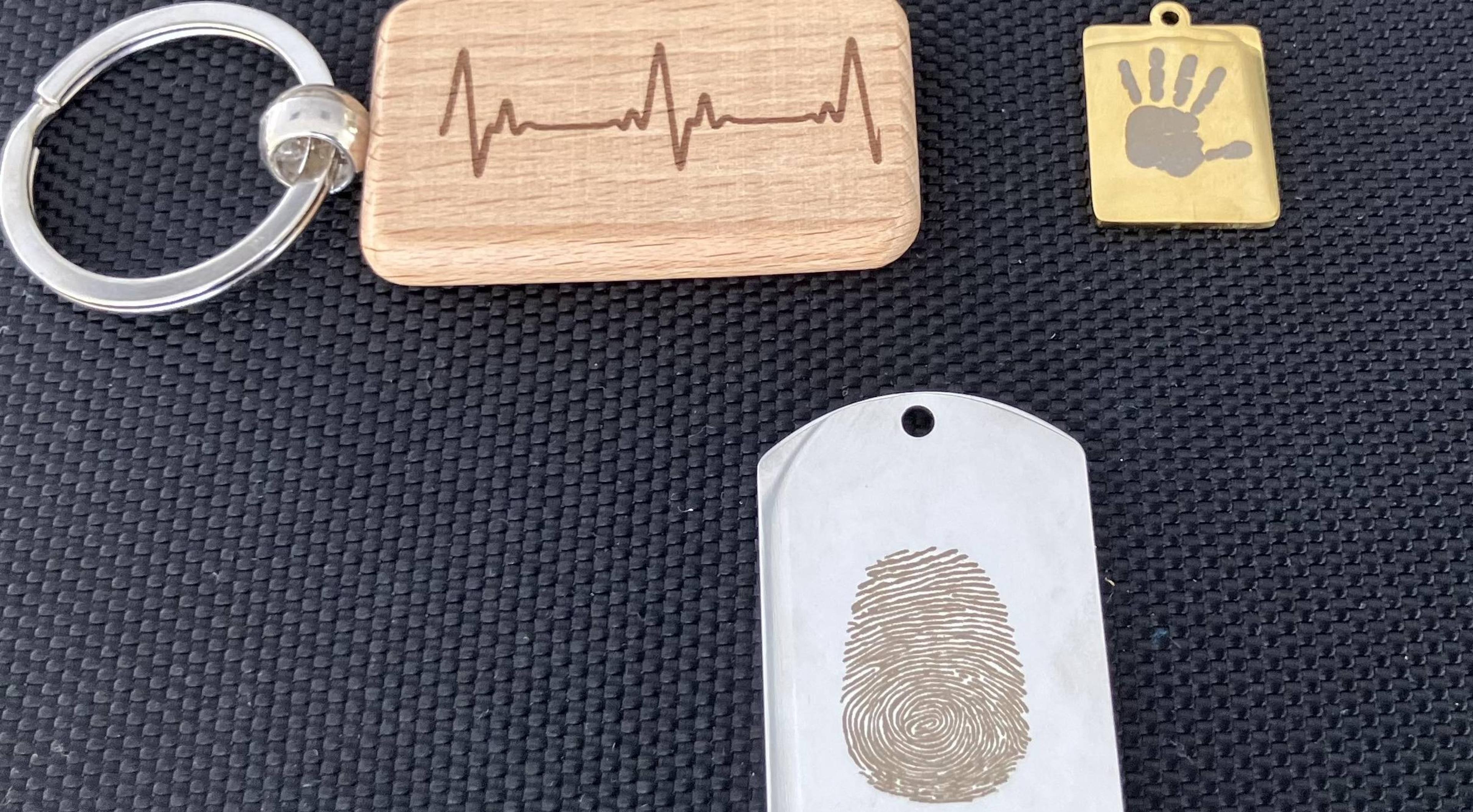When Should My Baby Go to the Dentist?
Julie Bitely
| 4 min read

A baby’s first smile is cause for joy, celebration and a special notation in the baby book. Those heart-melting gummy grins are the first peek at your baby’s developing personality and many new parents have been known to go to great lengths to coax them out. As a new parent, you play a big role in making sure your baby’s smile stays healthy from infancy through adolescence. Here’s what you should focus on at every age and stage – from tiny giggles to senior picture smiles.
Newborn to 1-Year-Old
Even though your newborn has no teeth yet, what they eat during their first year can make a big impact on their oral health.
- Infants should drink breastmilk or formula exclusively until they are six months old, according to recently updated U.S. nutrition guidelines.
- Nutrient-dense foods can be introduced at six months of age, but children shouldn’t consume added sugars before age 2, including fruit juices, which can contribute to the development of cavities.
- Babies should never go to bed with a bottle. Prolonged exposure to the milk or formula inside can lead to premature tooth decay when those first teeth start to pop through. The same is true for at-will breastfeeding for babies sleeping near mom – feeding off and on all night increases the risk for cavities, explained Dr. Lisa Knowles, associate dental consultant and dental director, Blue Cross Blue Shield of Michigan. Co-sleeping in this way can also be dangerous for babies. Sleeping solo in their own bassinette or crib is recommended.
- Care for baby’s gums and developing teeth by using a soft, damp cloth after feedings. When teeth poke through, a baby brush can be used to clean teeth and baby’s tongue.
First Dentist Appointment Around Age 1
Experts recommend that babies see a dentist within six months of their first tooth coming in or no later than 12 months of age. During this first visit, the dentist will check on the growth and development of your baby’s teeth. This is a good opportunity for you to ask the dentist any questions you have about proper dental home care and concerns you might have.
Toddler to Teen
After the first dentist appointment, schedule repeat visits every six months. At home, help your little one practice good dental hygiene. By age 5, about 60% of children will be affected by tooth decay but following these best practices will help keep baby teeth shining and strong:
- Brush teeth twice a day with fluoride toothpaste. Daily flossing should start around age 2 or 3 or whenever your child has at least two teeth that touch.
- Until your child is about six, you might want to supervise their brushing to make sure they’re reaching all surfaces. For children ages 1-2, use just a smear of toothpaste; for kids 3 and above, use only a pea-sized amount of toothpaste and make sure they aren’t swallowing the toothpaste when they brush.
- Drink tap water with fluoride or ask your dentist to apply a fluoride varnish.
- Limit foods with added sugar as much as possible. Dietary guidelines call for no more than 10% of daily calories to come from added sugars. Top sources in kids’ diets include sugar-sweetened beverages, desserts and sweet snacks and candy. It’s preferable to serve children whole fruits as opposed to 100% fruit juice, based on current dietary guidelines. However, if juice is served, it should be limited to 4 to 10 ounces per day based on age and calorie requirements.
Additionally, parents should be wary of foods that might seem healthy, but pack hidden hazards for children’s teeth, Knowles advised. “In my private practice, fruit chews and snacks are not as healthy as some parents think they are. Avoid giving kids leathery, chewy snacks that can get lodged in between the teeth,” she said. At every age, maintaining a dental home and keeping regular appointments can help you stay on top of your children’s teeth and oral health. Your dentist can assess and treat any cavities or other oral conditions that develop, take routine x-rays to monitor health below the gums and refer you to orthodontic specialists should your child need braces. In need of dental insurance? Learn more about Blue Cross’ Blue Dental plans here. Related:
Photo credit: Getty Images





